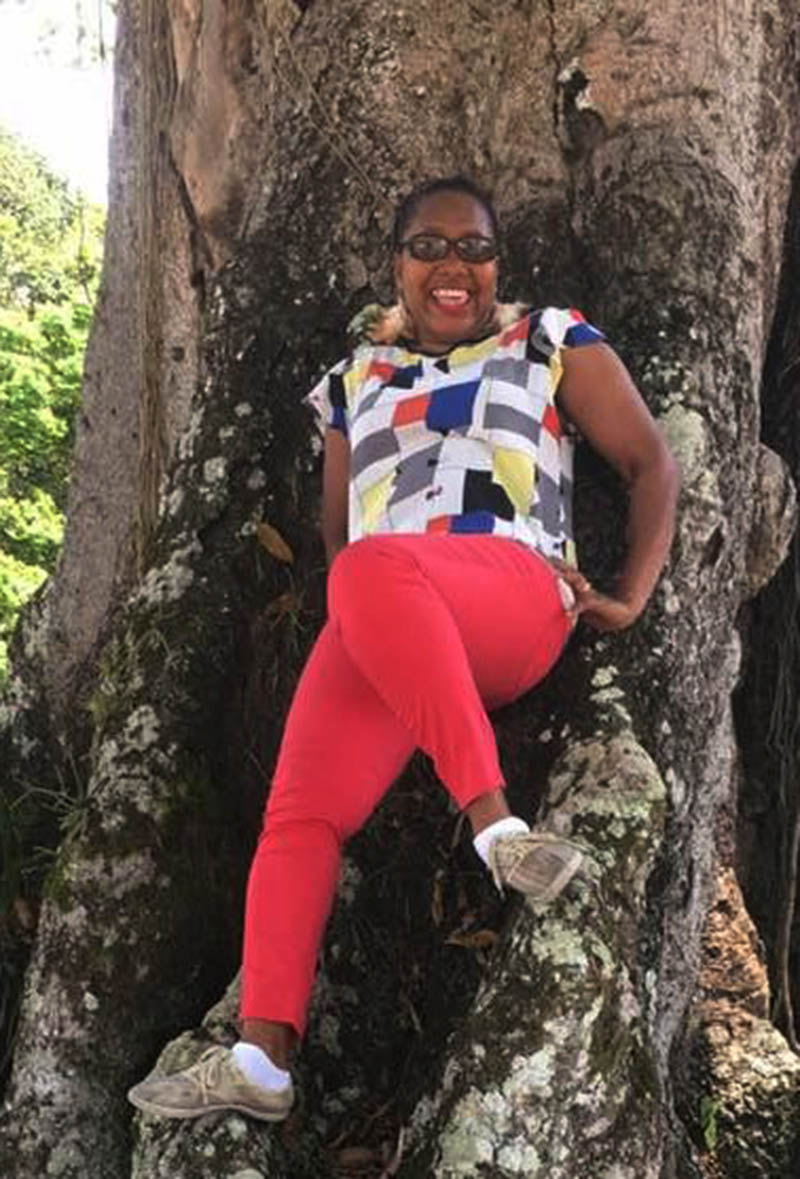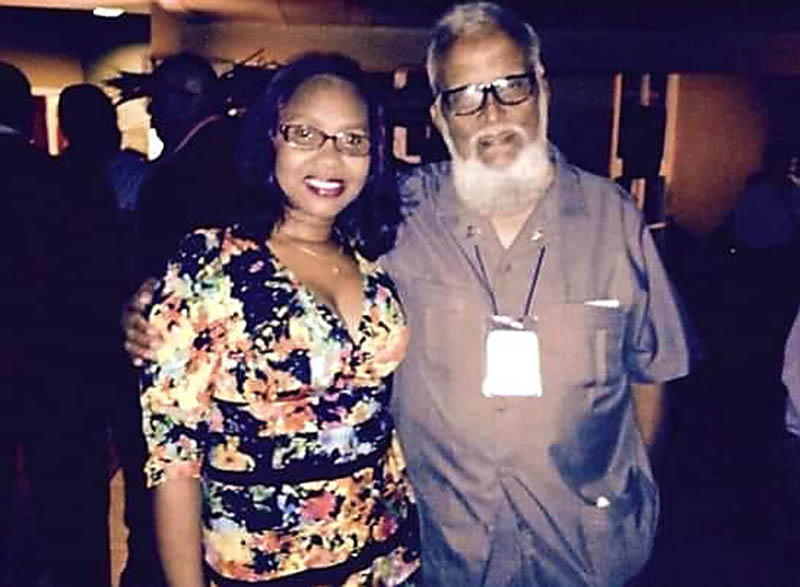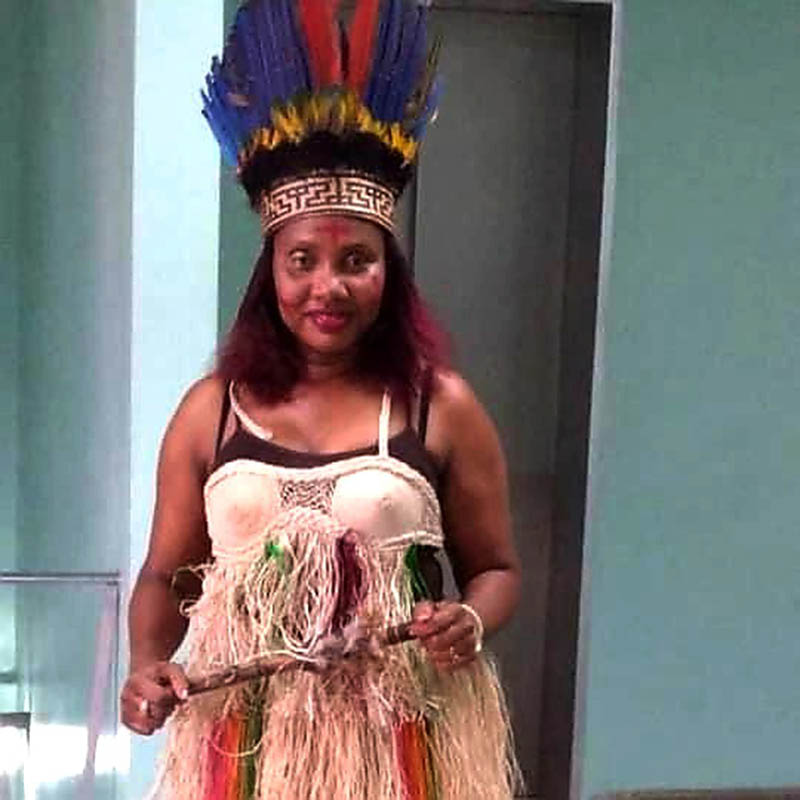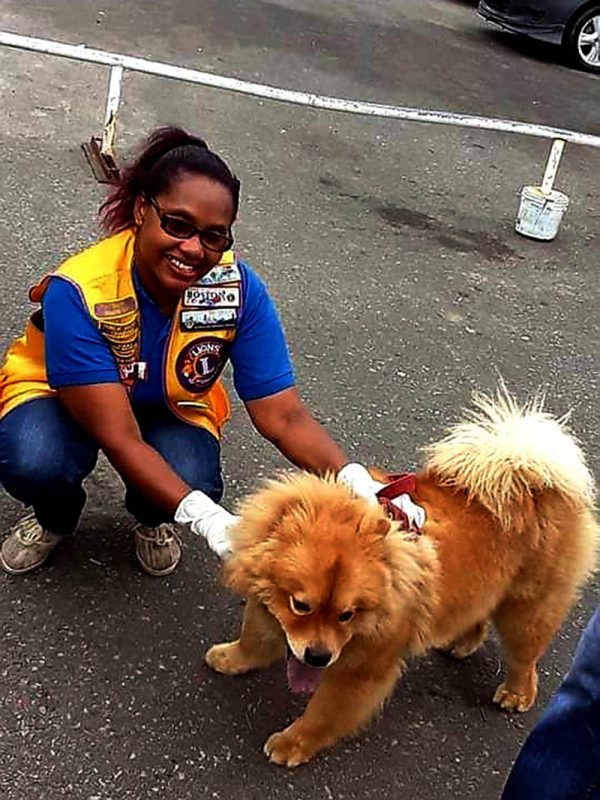From Mabaruma in Region One, Barima/Waini, Anita Lynette Baird, has lived her dream in electronics, radio journalism and public relations and she aims to continue working in communications and social work as a consultant or as a director of a company where she can contribute to uplifting people’s lives.
“Outside of work I am a fun person. I love to help people on my own and through Lionism when I cannot get it done on my own,” Baird told Stabroek Weekend.
The holder of a master’s degree in business administration from the University of Nicosia, New South Wales, Baird also earned herself a bachelor’s degree in communication in 2006, and a bachelor’s in social work, all from the University of Guyana (UG).
She attended Mabaruma nursery and primary schools before gaining a hinterland scholarship to St Stanislaus College in Georgetown. Baird also represented Region One in running at the GTU’s track and field annual championships.
“I had a very good childhood although my father was very strict. When he went to Georgetown, people used to say ‘Bairdie children escape from Alcatraz’ because he never liked us playing outside and getting into trouble.’ He had a farm and he would leave us work to do. When the cat is away the mice will play and the day before his return our friends would help us to complete the work.”
After graduating from St Stanislaus College in 1986 Baird returned to Mabaruma.
“My mother was a nurse and they tried to get me to follow in her footsteps at Mabaruma Hospital. When patients were sick, I looked after them very well. I recalled a patient frothing at the mouth and I tried giving him water as was requested. The man took his last breath in front of me and all hell broke loose. I scrambled for my things. I ran and fell down because I was afraid. I left him just like that. I was supposed to straighten his body, close his eyes and mouth and tie his fingers and his toes. That happened before visiting hours. When his family visited, they said, ‘Ow. They een even close he mouth or he eyes.’ I felt bad. I never went back. I was on the ward for only a few months.”
When she failed at nursing, her father, who was the engineer at the then Guyana Telecommunications Company (Telecoms), tried to get her to follow in his footsteps. “So I worked at Telecoms as a technician for a while and then returned to Georgetown to pursue courses in radio and electronics, servicing and repair and telecommunications I and II at the Government Technical Institute.
“I worked at Telecoms during the day and took evening classes at GTI. When Telecoms was getting rid of the analog circuit to bring in the digital circuit in Georgetown, I was in the analog area and they were reassigning us to different parts of the country where there was still analog in use. I was assigned to Kwakwani. The accommodation there wasn’t up to standard and safe for a female so I left the job.”
She joined the Georgetown Public Hospital Corporation as a biomedical engineer, where she worked on maintaining and repairing instruments that were used in the main operating theatre.
“A patient died and the hospital’s initial investigation put the blame on us. We were young and the investigators felt we did not know what we were doing and that we should not have been maintaining and repairing machines that were being used in the theatre. The machine used and which we had repaired had previously worked successfully on other people. Eventually we were cleared. It involved death, it was a bad name thing and I was seeking a way out.”
Media
In 1993, the then Guyana Broadcasting Corporation (GBC) was seeking technical operators and Baird applied. “I didn’t tell my mother anything but she heard my name being called on radio for an interview. I told my boss at the GPHC about the interview and he gave me time off for it. When I got the offer I went to him again and he advised me to take annual leave and to resign while on leave. I did that.”
Baird always expected to work with radio. “Remember I come from the interior and I know about listening to radio. So when I got my scholarship, I frequented the Amerindian Hostel on Saturdays for stipend and recreation. Aback of the hostel, a coconut tree had fallen down and bridged the trench between GBC and the hostel. I walked over the coconut tree trunk and climbed the fence to go in GBC yard to pick some grass and to show my guardian that I will work there one day. She never took me seriously. When I applied and got through to work at GBC, that was a dream come through.”
She joined the GBC as an audio control engineer. “I really loved it. I was the only female but I was not getting promotion. I was always stuck at number four and I was always acting for someone when they were on leave. I used to be around the newsroom, because we had to do inserts for the newsroom and man-in-the-street, so I felt I knew a thing or two.”
When she indicated she wanted to leave the technical department and join the newsroom, her supervisor did not want to lose her because she was good at her work. He told her to go over to the newsroom, she had to be qualified in communications. So she started the diploma in communications at UG.
“They didn’t want to give me time off to go to classes so I had to find the time. No one liked working the early morning shift and I told them to give it to me because I wanted to go to UG during the day. I had to be in the studio for 3.15 am to be ready for the line-up theme at 3.30 am before the stationed signed on at 4.00 am. For two years I did that. When UG closed we used to alternate the morning shift so I would then get a break.” During that time she got married and gave birth to a daughter. She took a break after obtaining the diploma
When vacancies for a producer at GBC were advertised, she applied for a position. “They gave me no special treatment although I was working there. It was not easy going over to the newsroom.” She did a number of beats but specialized in crime reporting.
She recalled returning to Guyana from the US on February 2002 and joining GBC’s mobile team at Church and Camp Street to cover the Mashramani Day Parade when they heard of a jail break and shooting at the Camp Street prisons. “Prison warden Roxanne Winfield was shot in the head and the eye and we visited her at the hospital. Working with state media had some privileges at government and state entities. I was close to the minister and I was able to go through some of the barriers others from the private media could not go through.”
From then on Baird had it busy covering crime. “It was hot then. Dale Moore and the guys were very busy. Fires were regular, buildings burnt down, and most times these things happened at nights.”
When American diplomat Stephen Lesniak was kidnapped in April, 2003, she said, “I went to the house where he was kept. It had nothing inside but a bench. People in the community knew where he was but nobody said anything. We saw when the police took him out very quickly and we followed. I couldn’t move with GBC. I had to move with Stabroek News because as long as they knew I was from the state media I was not allowed to enter certain areas like the gully in Buxton, the hideout of Sean Brown, Andrew Douglas and gang.”
When Superintendent Leon Fraser of the Guyana Police Force was killed, the police was not releasing information. “We went to the Commissioner of Police office to find out what we could. The police vehicles were lining up to go up the Linden-Soesdyke Highway and we decided to follow them. I was in Enrico Woolford’s car. We ended up in Yarrowkabra. All we saw was a piece of stick and a blue tarpaulin tied on a stick where the police said Fraser was killed. We saw no blood. Apparently the police were told to take us there to mislead us. We wrote what we saw until the police sent their official release.”
Baird stayed with GBC until 2006 when the company was incorporated with the National Communications Network (NCN) and the radio station moved from High Street in downtown Georgetown to Homestretch Avenue, uptown. Her job became redundant and she reapplied and was rehired as a radio journalist to cover crime.
“I had gotten to know almost everyone in the security system and they trusted me because I never named my sources. I even got into some trouble for reporting, based on authentic sources, a watered down version on the ritual the GDF commissioned officers had gone through after a passing out parade. One officer was beaten badly and hospitalised. Another media house heard about the story and sought the government spokesman for a comment and he persuaded them not to carry the story. The government spokesman heard from that media house that GBC carried the story. I was summoned to Office of the President (OP) the next day. I called Adam Harris, then president for the Guyana Press Association and a lawyer who advised me not to go and not to disclose my source under any condition. The lawyer said if they asked me to write anything to let them write to her. The spokesman then called GBC’s human resources department to put pressure on me to go to OP. I stood my ground, telling them even if I had to go to jail I would not disclose my source. It was left like that.”
Transitioning from media
At this time, she had started the bachelor’s in communications degree and could not get time off to attend classes during the day. There were times she had to cover the courts and could not attend classes. “I made friends with the police and they were sympathetic to my cause. I attend classes and went to the police station after classes where they gave me the information I needed. The system made me a good problem solver because when they put obstacles in my way I had to find solutions.”
At NCN senior staffers distributed PPP party application forms and had to attend party group meetings at Freedom House. “I didn’t want any party thing or [to] become involved in party politics. Because of that I used to feel pressured. I had enough sense to stay quiet.”
After she found it almost impossible to continue working in the state media, she applied and got through to work at the National AIDS Programme Secretariat (NAPS) as a researcher/writer in January 2007.
While working at NAPS she realized that as much as they wanted someone with a communication degree they needed someone with a good knowledge of social work. When she was reading for the degree in communication, she had done social work as a minor.
“That made me go back to UG to complete the degree in social work. Apart from researcher/writer I was the coordinator for education, information and communications. It was a good experience. We did brochures, newsletters and awareness programmes on abstention, faithfulness and condomising among other topical issues on sexual awareness including the training of peer educators.”
However as funding reduced, salaries were slashed and not paid in time, Baird saw a vacancy for a communications officer at the Bank of Guyana (BoG). She applied, did the interview in December 2013 and joined the staff on January 2, 2014. She is now BoG’s head of communications.
“Before, I knew nothing about money apart from spending it. Now I am responsible for counterfeit detection training with members of the public, including banks, cambios and pump attendants, among others”.
The BoG introduced her to the Royal Toastmasters Club, for which she is now vice president, public relations.
Outside of work, Baird, a staunch Catholic and a reader at Brickdam Cathedral says, “I am a fun person and I like helping people.”
She joined the Lions Club of Georgetown to help the less fortunate. “This helping thing did not come overnight. We grew up seeing our parents helping big people and accommodating children from the riverain areas to attend school at North West Secondary. Some children from Wauna stayed at us during the week for school and went home on weekends.”
Now, Baird, currently the second vice president of the Guyana Association of Professional Social Workers, wants to do a master’s degree in social work and later to give advice on the areas she has mastered.








